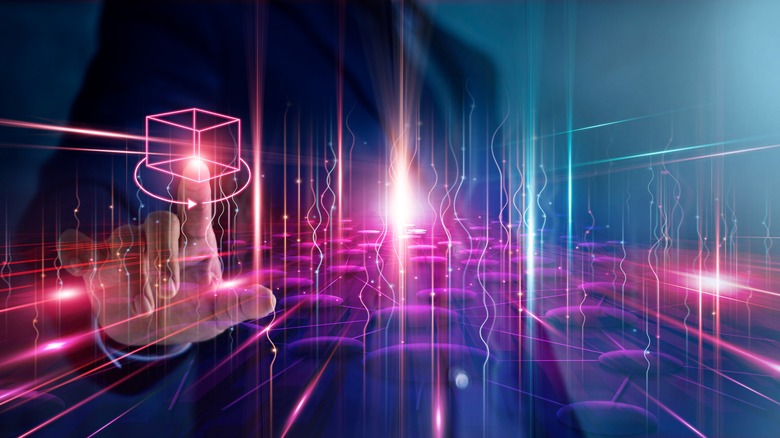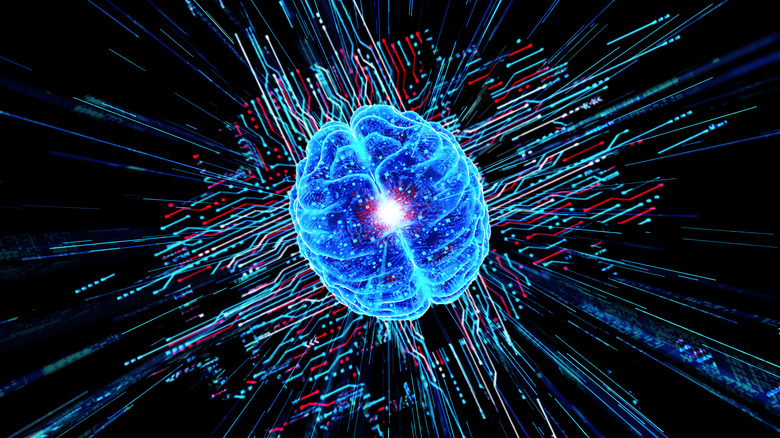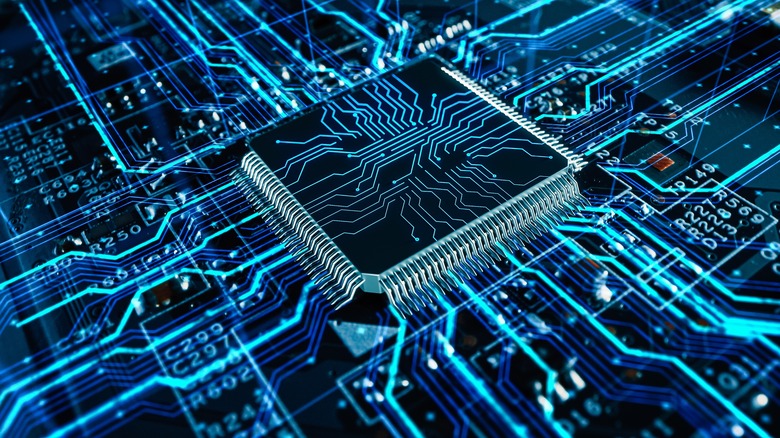Physicist Dr. Michio Kaku Says This Technology Will Revolutionize AI Chat-Bots, And Not For The Better
In podcast episode number 1980 of "The Joe Rogan Experience," Dr. Michio Kaku joined Rogan to discuss the implications of AI chatbots on the future of a multitude of human experiences. The pair talk through the potential benefits and some limitations that remain within consumer AI technologies. Dr. Kaku is a theoretical physicist and the cofounder of string field theory. He's an authority in this field, to be sure, and their conversation quickly veers from a singular talk focused on the breakthroughs of ChatGPT and other AI chatbots (like Google Bard) to waters that he is far more familiar with. Specifically, Rogan and his guest begin talking through quantum computers' impact on the burgeoning AI chatbot scene. "Now here's the question: If quantum computing gets involved in AI, what are we looking at?" Rogan muses.
"The chatbots that are a revolution in software and then quantum computers, which are a revolution in hardware, when they get together, watch out," Dr. Kaku answers back. The pair never dig fully into what this 'meeting of the minds,' so to speak, could mean in all its nuance. But Dr. Kaku ultimately speaks to the ability of quantum machines to dictate fact from fiction when it comes to the generative capabilities of an AI system. And more importantly, he issues a stern warning regarding one potential side effect.
How does quantum computing fit into the picture?
For Dr. Michio Kaku, the problem is AI can't naturally identify the line between reality and fiction. "So it can't discern what's accurate?" Joe Rogan asks. "Exactly!" Dr. Kaku says, "Chatbots do not know what is correct or incorrect." AI chatbots aren't grounded in the hard facts and reality of the natural world surrounding us. This makes them exceedingly adept at crafting thoughts and ideas, but inaccuracies are a side effect that remains ingrained in the product (known as hallucinations).
Dr. Kaku's reasoning becomes laser-focused on the crossover effect between quantum computing and the AI toolbox. "We have to get used to the idea that quantum computers introduce a whole new way of looking at reality," Dr. Kaku tells Rogan.
He notes that the real peril lies in the user's purpose. Quantum computers, according to Dr. Kaku, can function as the much-needed fact checker to the AI system's inherent flaws and biases. He notes that good ideas come from the logic battle between ideas of all sorts and that this combat landscape can't exist within the AI software. "It's the struggle between ideas out of which correct ideas emerge. And this does not happen on the internet," he suggests. But with a quantum computer acting as the information parsing hardware, this conversation can be had, leading to a far more accurate AI system ready to take on even more meaningful tasks and roles to continue improving human society.
Quantum computing can be transformative or tragic, depending on the user
Dr. Michio Kaku's primary concern surrounding AI technology doesn't lie within the limitations or capabilities of AI systems themselves. Rather, he is troubled by growing pains that may come into existence in the crossover with these more powerful computers.
There's a danger in who controls the fact-checking capabilities of this system, Dr. Kaku reasons, and perhaps very accurately. Governments worldwide are increasingly interested in managing narrative facts and quashing dissenting voices. This can be seen at all levels of governance and isn't a new phenomenon. But with the internet making communication and the dissemination of information a rapid process, it can be weaponized far more effectively. Building responsible computing technologies can unleash the full potential of an AI system or harness it as a weapon of mass deception and control. This is the potential future Dr. Kaku envisions if humanity can't coalesce around a positive vision for continually advancing technology in this realm.
He conceives of quantum computing as a great improver of the human condition. Dr. Kaku notes that if there is advanced life out there in the galaxy, it has almost certainly perfected the use of quantum computers to make the gigantic technological leap that still lies ahead of humanity. Still, if sinister motives underpin their use, the merger of quantum processing and AI could spell more doom than dawn for humanity's future path.


